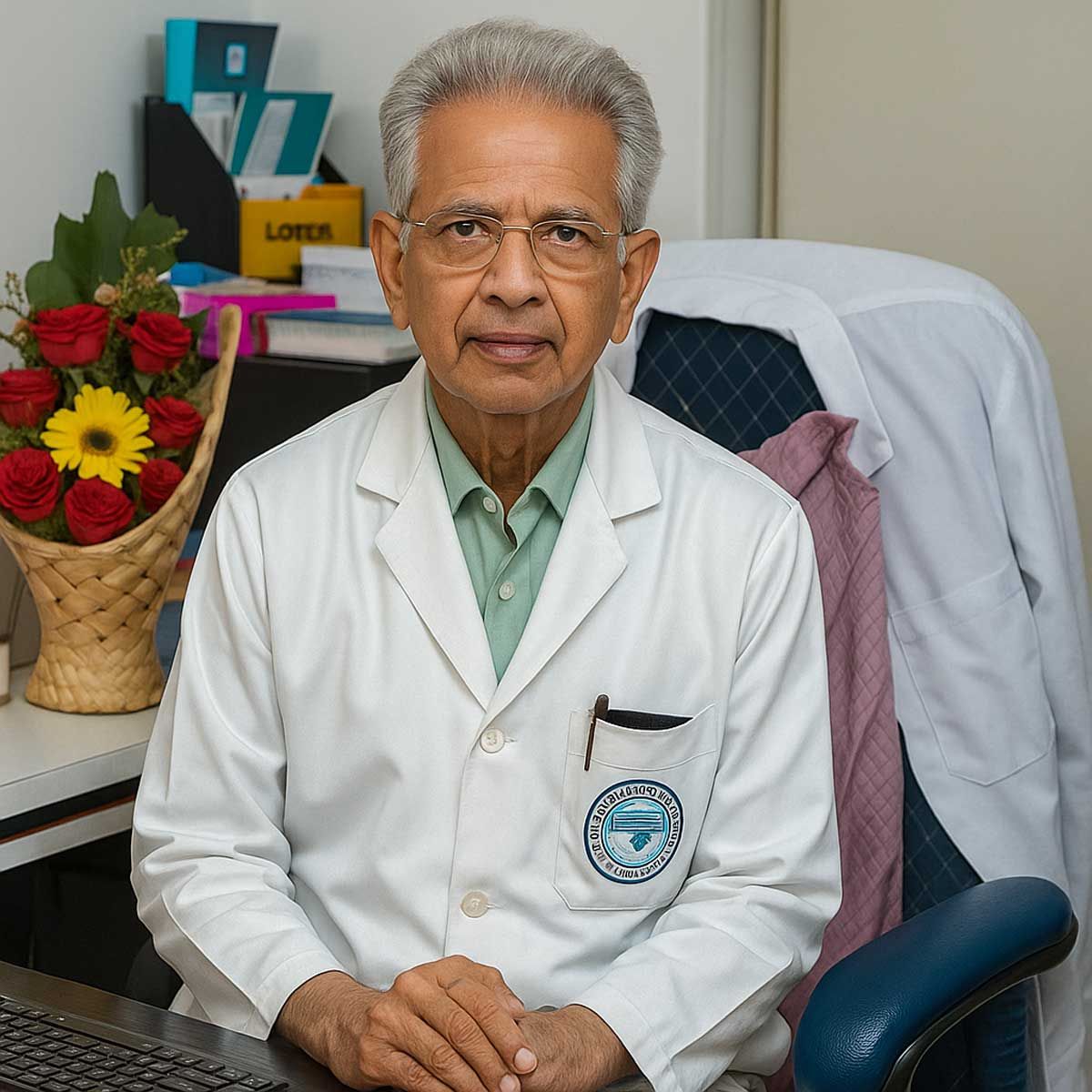More Coverage
Twitter Coverage
Satyaagrah
Written on
Satyaagrah
Written on
Satyaagrah
Written on
Satyaagrah
Written on
Satyaagrah
Written on
JOIN SATYAAGRAH SOCIAL MEDIA
"Academic Ambition or Anti-National Agendas": The arrest of ISIS-linked students at AMU, including Faizan and Abdul, raises critical concerns about radicalization in educational institutions, challenging India's approach to campus security and ideology

In a startling development that has sent shockwaves through Uttar Pradesh, the state's Anti-Terrorist Squad (ATS) apprehended seven individuals linked to what is being referred to as the 'Aligarh ISIS module'. The arrests, carried out in the first half of November 2023, have cast a shadow over the prestigious Aligarh Muslim University (AMU), raising unnerving questions about its alleged connections to terrorist activities.
|
The individuals detained have been identified as Abdullah Arshlan, Maaz bin Tariq, Naved, Wajiuddin, Rakib Imam, Noman, and Mohammad Nazim. These arrests have ignited a debate on the safety and security implications for educational institutions, highlighting the pressing need for vigilance against such threats.
In a concerning twist to the narrative, ATS is now on the hunt for two more individuals linked to this module, Abdul Samad Malik and Faizan Bakhtiar, who are currently at large. The connection of these suspects to AMU has intensified the scrutiny on the university, prompting serious deliberations on whether it has unwittingly or otherwise become a refuge for those with extremist leanings.
This revelation has put AMU in the limelight, raising tough questions about the extent of vigilance and monitoring needed in academic environments to prevent them from being exploited by elements seeking to propagate extremist ideologies. The situation is a stark reminder of the challenges educational institutions face in balancing open academic environments with the need to ensure they are not misused for nefarious purposes.
|
As the investigation continues and the search for the absconding suspects intensifies, the focus remains on understanding the depth of these alleged connections and ensuring that educational spaces remain bastions of learning, not of radicalization.
The unfolding investigation into the 'Aligarh ISIS' module is deepening, with the Uttar Pradesh Anti-Terrorist Squad (ATS) now expanding its search to include another key suspect, Harish Farooqui. Information obtained from sources indicates that Farooqui, a former student of Aligarh Muslim University (AMU), is under the watchful eye of the National Investigation Agency (NIA) and the Special Cell of the Delhi Police.
Farooqui's involvement is significant; he is believed to have played a crucial role in establishing the SAMU Group and has been evading capture since the arrest of Shahnawaz, who was connected to the Pune ISIS network, by the Delhi Police. This deepens the intrigue surrounding the AMU's alleged connection to these terror activities, painting a concerning picture of the university's indirect involvement in extremist operations.
Meanwhile, Abdul Samad Malik, another suspect linked to the 'Aligarh ISIS' module, has emerged as a top priority for the Uttar Pradesh ATS. Named in the FIR lodged by the Aligarh in-charge of ATS, Abdul, hailing from Sambhal district, is known for his proficiency in the Arabic language. His alleged involvement in the module adds another layer to the complex web of terror links being unraveled by the authorities.
|
The ongoing investigation is a stark reminder of the challenges faced by law enforcement agencies in combating the spread of extremist ideologies. It also highlights the crucial role of educational institutions in remaining vigilant against the misuse of their platforms for radical activities. As the search for these suspects continues, the focus is not just on apprehending the individuals but also on understanding the broader network and preventing further spread of such ideologies
The investigation into the 'Aligarh ISIS' module has led to alarming revelations about Abdul Samad Malik and Faizan Bakhtiar, two individuals with past connections to Aligarh Muslim University (AMU). According to information from sources, these individuals are suspected of having deep-rooted involvement in radicalizing and influencing youth towards extremist activities.
Abdul Samad Malik, an alumnus of AMU, is considered a highly influential figure within this extremist group. Described as the most radical thinker among his peers, Malik is accused of instigating youth to the extent of becoming suicide bombers. His academic journey at AMU spanned from 2019 to 2022, during which he completed his graduation. Since 2022, he has been pursuing a Master in Social Working (MSW) degree. Malik's disappearance following the arrest of Abdullah Arshlan has triggered an intensive manhunt by the authorities.
|
Faizan Bakhtiar, another AMU student linked to the Aligarh ISIS module, hails from Prayagraj, Uttar Pradesh. Bakhtiar's alleged expertise in utilizing social media platforms for radicalization purposes is a critical aspect of the ongoing investigation. Furthermore, he is accused of engaging in the illegal buying and selling of weapons across various districts. Like Malik, Bakhtiar is currently pursuing an MSW degree from AMU.
These revelations have cast a dark cloud over AMU, raising serious concerns about its role in monitoring and preventing the spread of extremist ideologies within its campus. The involvement of its students in such activities underscores the need for heightened vigilance and proactive measures to safeguard educational institutions from being breeding grounds for radical thoughts and actions. The pursuit of Malik and Bakhtiar remains a high priority for the authorities as they work to dismantle the network and prevent further radicalization of youth.
Faizan Bakhtiar and Abdul Samad Malik, both individuals, who have been actively associated with the Students of Aligarh Muslim University (SAMU) group, have gone off the radar, keeping their phones switched off since the ATS crackdown.
Their involvement in SAMU functions has come under scrutiny, particularly in light of their alleged actions and statements. Abdul Samad Malik, in particular, has been accused of delivering provocative speeches that not only spread extremism but also targeted specific religious groups with hate speech. This, combined with the duo's alleged vow to implement Sharia law in India, paints a concerning picture of their intentions and the potential influence they may have had within the university setting.
These accusations and their association with an attempt to establish an ISIS network within India have made their apprehension a matter of urgency. The objectionable content of their speeches, specifically targeting the Hindu religion, has added a communal angle to the already volatile situation, heightening tensions and concerns about religious harmony.
The successful apprehension of several terrorists linked to this network before Diwali was heralded as a significant achievement for the UP ATS. However, the ongoing pursuit of Bakhtiar and Malik underscores the continued threat posed by such extremist networks and the challenges faced by law enforcement in addressing them.
The case brings to the fore the crucial issue of vigilance within educational institutions and the need for effective measures to prevent the spread of radical ideologies. It also highlights the importance of community awareness and cooperation in identifying and reporting potential threats to national security and communal harmony. As the hunt for Bakhtiar and Malik continues, the resolution of this case is keenly awaited, with the hope of bringing to justice those who seek to undermine the nation's peace and stability.
|
Few cases involving students from Aligarh Muslim University (AMU) who were arrested for alleged anti-national activities or links to terrorism.
Rakib Inam, Naved Siddiqui, Mohammad Noman, Mohammad Nazim Arrested for Alleged ISIS Links (Updated: Nov 11, 2023):
- The Uttar Pradesh Anti-Terror Squad (ATS) arrested four individuals, including Rakib Inam, Naved Siddiqui, Mohammad Noman, and Mohammad Nazim, for their suspected association with ISIS. The arrests were part of a broader investigation into a terror network linked to the student organization SAMU at AMU. The ATS believed these students were planning a major terror attack in India. This development raised serious concerns about radicalization within the university's student body and its potential impact on national security.
Rakib Imam Ansari, Naved Siddiqui, Mohd Noman, Mohd Nazim Arrested for ISIS Links:
- The ATS of Uttar Pradesh Police arrested Rakib Imam Ansari, Naved Siddiqui, Mohd Noman, and Mohd Nazim for their purported links with ISIS. The arrests included a BTech and MTech graduate, a BSc student, and BA (Honours) graduates from AMU. The ATS stated that these individuals were distributing ISIS literature to persuade others to join the organization and were using online platforms and secret meetings to prepare individuals for jihad. The accused reportedly came in contact with each other during meetings of SAMU at AMU.
Noman, Nazim, and Naved Arrested in Connection with Aligarh ISIS Module (November 12, 2023):
- In a significant operation by the Uttar Pradesh ATS, three AMU students, Noman, Nazim, and Naved, were arrested from Sambhal district for their links to the Aligarh module of ISIS. The students were accused of promoting terrorist jihad and distributing ISIS literature. The operation was part of a crackdown on suspected terrorists associated with ISIS in the area, highlighting the ongoing efforts to combat extremism in educational settings.
Six AMU Students Arrested for Working as ISIS Operatives (Updated: Nov 11, 2023):
- Six individuals linked to AMU, including Rakib Inam, Naved Siddiqui, Mohammad Noman, and Mohammad Nazim, were arrested by the UP ATS. These students were part of SAMU and were planning to carry out a major terror attack in India. The ATS's actions were based on information obtained from the interrogation of Rizwan and Shahnawaz, who had ties to the Pune Islamic State module. This case demonstrated the extent of radicalization within the university's student body【192†source】.
Rakib Imam Ansari, Naved Siddiqui, Mohd Noman, Mohd Nazim Arrested for Alleged ISIS Connection:
- The ATS arrested four men, including three former and one current AMU student, alleging their connection to ISIS. The arrests included a BTech and MTech graduate; a BSc student; and a BA (Honours) student. They were accused of trying to connect new people with ISIS under the guise of SAMU. Banned ISIS literature and devices containing extremist content were found, suggesting their deep involvement in extremist activities.
Faizan Ansari Arrested by NIA for Planning IS-Linked Attacks (July 20, 2023):
- Faizan Ansari, an AMU student, was arrested by the National Investigation Agency (NIA) for allegedly planning terror attacks on behalf of the Islamic State (IS). His arrest followed searches at his residence in Jharkhand and rented accommodation in Aligarh. Ansari was involved in a conspiracy to support IS activities in India and spread their propaganda on social media. This arrest highlighted the reach of IS's influence among young students in India.
Faizan Ansari Arrested for ISIS Link (July 2023):
- The NIA arrested 19-year-old Faizan Ansari, a student of AMU, for allegedly being a member of ISIS. His arrest was part of an ongoing crackdown against ISIS modules operating in the country. Ansari was involved in a criminal conspiracy to support ISIS activities in India, radicalize neo-converts, and attract them to the terrorist fold. He was in contact with foreign-based ISIS handlers and planning violent actions.
Farhan Zuberi and Ravish Ali Khan Arrested Over Anti-CAA Protests:
- UP Police arrested two AMU student activists, Farhan Zuberi and Ravish Ali Khan, for their involvement in protests against the NPR, NRC, and CAA. The protests began in AMU in December 2019 and continued till March 2020. Both Zuberi and Khan were arrested based on a charge sheet filed against more than 100 AMU students under various non-bailable charges. This case highlighted the challenges faced by student activists in voicing dissent and the broader crackdown on anti-CAA student protesters across India.
Four AMU Students Arrested for "Unpermitted" Palestine Solidarity March (October 10, 2023):
- Amid the Israel-Palestine conflict, students of AMU marched in solidarity with the Palestinians, leading to the arrest of four AMU students for conducting an "unpermitted" march. The march was a response to the conflict that killed hundreds and saw global divisions. The students' participation in the march drew attention to the larger geopolitical issue and its impact on university campuses.
AMU Student Arrested for 'Pro-Terror' Posts:
- Two students, including one from AMU, were arrested over alleged 'pro-terror' and 'anti-India' posts on social media. An AMU student, identified as Osama, was arrested for supporting the 2019 Pulwama terror attack in Jammu & Kashmir and making objectionable comments on Indian security forces. This arrest sparked tension and clashes among student groups in Uttar Pradesh, underscoring the polarizing effect of such social media activity on campuses and communities.
|
The alarming trend of educational institutions, particularly universities, transforming into hotbeds of anti-national activities is a matter of grave concern. Universities, historically revered as bastions of learning and free thought, are increasingly being implicated in incidents that challenge national integrity and security. This trend, which has been particularly noticeable in some Indian universities like Aligarh Muslim University (AMU), raises several critical questions about the role of educational institutions in a democracy and the factors contributing to this disturbing development.
At the core of this issue is the radicalization of youth. Universities are meant to be spaces where young minds are nurtured, and critical thinking is encouraged. However, the same openness and freedom that enable intellectual exploration can, unfortunately, be exploited for radical indoctrination. The recent arrests of students from AMU for alleged links to terrorist organizations like ISIS are a stark reminder of this reality. These students, instead of engaging in constructive academic and social activities, were reportedly involved in activities that are antithetical to the values of democracy and national unity.
The influence of extremist ideologies on campuses is not confined to terrorism alone. Instances of student involvement in anti-national propaganda, violent protests, and social media campaigns that incite communal discord are increasingly being reported. These activities not only disrupt the academic environment but also pose a threat to the social fabric and national security.
The causes of this shift are multifaceted. The politicization of student bodies and the prevalence of extremist elements within universities play a significant role. Often, political agendas overshadow academic objectives, leading to a culture of unrest and dissent that sometimes crosses the line into anti-national activities. Furthermore, the influence of external elements, including radical groups and foreign entities, cannot be overlooked. These groups often manipulate young, impressionable minds, exploiting grievances and ideological leanings for their own agendas.
|
Moreover, the advent of social media has compounded the problem. The unchecked spread of misinformation and extremist propaganda through these platforms has a significant impact on students, who are major consumers of digital content. The echo chambers created by social media can reinforce radical views and exacerbate divisions, leading to a polarized campus environment where dissent can quickly turn into hostility towards the state and its symbols.
Addressing this challenge requires a multi-pronged approach. Educational institutions must strengthen their vigilance and develop mechanisms to identify and counter the spread of radical ideologies. This involves close collaboration with law enforcement agencies while respecting the autonomy and academic freedom of these institutions. Universities need to foster an environment where diverse viewpoints can be expressed in a constructive manner, without resorting to violence or anti-national rhetoric.
Moreover, there's a need for curriculum reform that promotes national unity, civic responsibilities, and critical thinking. Educational interventions that emphasize the values of democracy, tolerance, and the rule of law are crucial. Engaging students in community service and social development projects can also redirect their energies towards positive and constructive activities.
Counseling and mentorship programs can play a vital role in addressing the grievances and ideological conflicts that students might face. By providing a platform for dialogue and understanding, universities can prevent the alienation and radicalization of students.
In conclusion, while universities must remain spaces for free thought and critical inquiry, they also bear the responsibility of safeguarding the values of democracy and national integrity. It is imperative to strike a balance between encouraging intellectual freedom and preventing the spread of anti-national activities. Ensuring that educational hubs remain centers of learning and positive social change, rather than turning into dens of anti-national activities, is a challenge that requires concerted efforts from educational authorities, government agencies, civil society, and the students themselves.
|
References:
India Today Article
Swarajya Magazine Article
Zee News Article
India Today Article
Maktoob Media Article
Sakshi Post Article
Devdiscourse Article
Maktoob Media Article
Zee News Article
Deccan Herald Article
 Support Us
Support Us
Satyagraha was born from the heart of our land, with an undying aim to unveil the true essence of Bharat. It seeks to illuminate the hidden tales of our valiant freedom fighters and the rich chronicles that haven't yet sung their complete melody in the mainstream.
While platforms like NDTV and 'The Wire' effortlessly garner funds under the banner of safeguarding democracy, we at Satyagraha walk a different path. Our strength and resonance come from you. In this journey to weave a stronger Bharat, every little contribution amplifies our voice. Let's come together, contribute as you can, and champion the true spirit of our nation.
 |  |  |
| ICICI Bank of Satyaagrah | Razorpay Bank of Satyaagrah | PayPal Bank of Satyaagrah - For International Payments |
If all above doesn't work, then try the LINK below:
Please share the article on other platforms
DISCLAIMER: The author is solely responsible for the views expressed in this article. The author carries the responsibility for citing and/or licensing of images utilized within the text. The website also frequently uses non-commercial images for representational purposes only in line with the article. We are not responsible for the authenticity of such images. If some images have a copyright issue, we request the person/entity to contact us at This email address is being protected from spambots. You need JavaScript enabled to view it. and we will take the necessary actions to resolve the issue.
Related Articles
- OP Jindal Global University facilitated a hate-mongering ex-prof under the guise of discussing 'History and Politics of the Palestinian Present', who made anti-Hindu remarks, Sameena Dalwai forced students to join the talk and hates ‘Jai Sri Ram’ chant
- "As the facts change, change your thesis. Don't be a stubborn mule, or you'll get killed": NIA conduct raids across 56 locations in Kerala in houses of banned terror outfit PFI workers who were collecting funds and trying to commit acts of terror in India
- British colonization mindset still prevails: Sardar Udham's entry rejected in Oscars because “It projects hatred towards British"
- Sukhdool Singh, a notorious gangster listed by NIA assassinated in Canada, highlighting the growing web of Punjab's criminals overseas, as India's concerns rise, the spotlight turns to Canada's stance on sheltering such elements from Punjab's underworld
- Brussels Chronicles: Rahul Gandhi started another of his frequent ‘foreign tours’ yesterday, a habitual tryst with anti-India lobbyists, nurturing alliances that threaten to erode India's sovereign narrative. A quest for power, or a misaligned crusade?
- "Ship in port is safe, but that's not what ships are built for": Deep-water, multipurpose, international seaport and container transshipment terminal at Vizhinjam that will compete with Colombo, Singapore and Dubai meets Church-led protests in Kerala
- Adani battles Subramanian Swamy's nefarious and disgusting attempts to link them to Uttarkashi tunnel collapse, claim that was started by propaganda site The Wire, Adani Group slams condemnation, the truth stands tall – no involvement, no compromise
- As 241 lives perished in the Air India 171 crash, Rajdeep Sardesai shamelessly paraded a TikToker in a pilot costume to blame dead pilots—only to watch his ‘expert’ flip-flop when RAT footage exposed the truth: it was engine failure, not human error
- "रोड पे तो आना ही पड़ेगा": Sarwar Chishti, notorious for inciting Muslims and supporting economic boycotts against Hindus, now targets the Waqf Amendment Bill 2024, threatening nationwide unrest with his inflammatory speeches and dangerous provocations
- "जालसाज": ABC News 'journalist' Avani Dias, known for her visa cancellation fiction drama, now misrepresents India's Constitution, falsely claiming 'secular' was included in 1947, though it was Indira Gandhi who added it in 1976 amidst her emergency-era
- "A joke at another's expense reveals more about the joker": In quest for humor, Prakash Raj takes a jab at Chandrayaan-3, only to find himself booked, perhaps next time, he'll orbit around wiser choices rather than eclipse the hardwork of our scientists
- "What's worse: an emotional betrayal or a physical betrayal? That's a really tough call": NIA raids offices of Krishna Hing manufacturer and its owner Asma Khan Pathan’s house in connection to suspicious transactions worth crores linked to terror funding
- "A symphony of anti-India agendas": Rahul Gandhi's camaraderie with Hindumisic author Christophe Jaffrelot in a recent event stirs controversy; the prolific critic of India, BJP & Indian judiciary, notably participated in 'Dismantling Hindutva' conference
- Dhruv Rathee fans mark YouTuber Karolina Goswami for targeted harassment after she exposed his lies
- "Let me light my lamp", says the star, "And never debate if it will help to remove the darkness": Jhanvi Dadarkar, a proud Indian in Britain who studied at Oxford, and lawyer by profession destroys Modi detractors in debate for no confidence in Modi govt




























